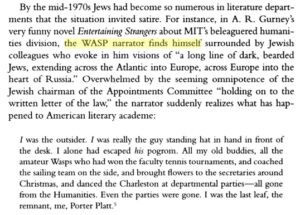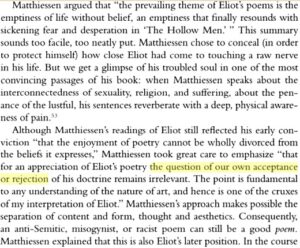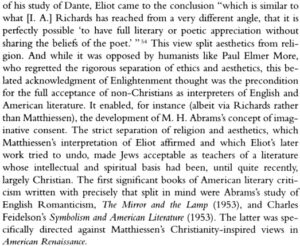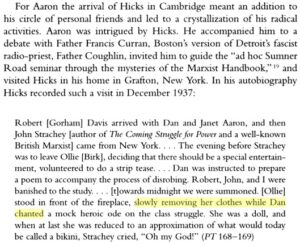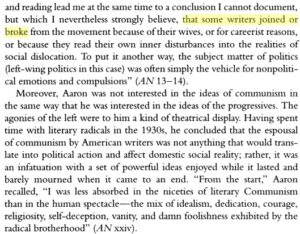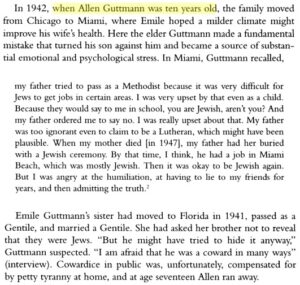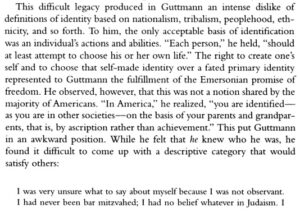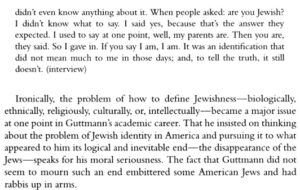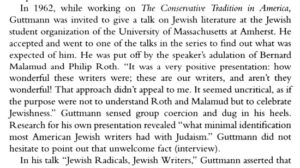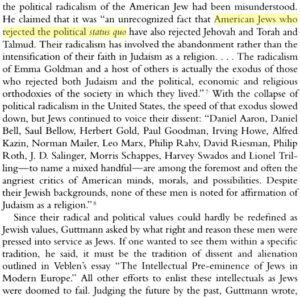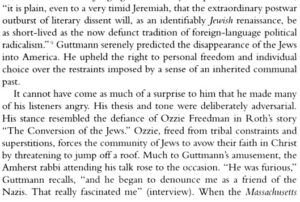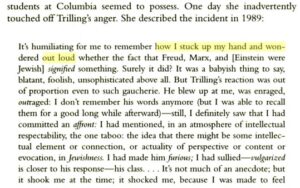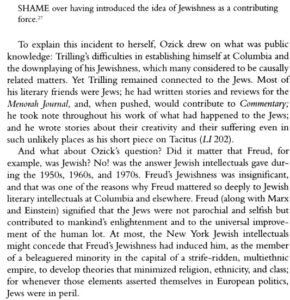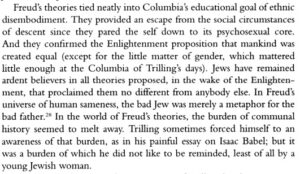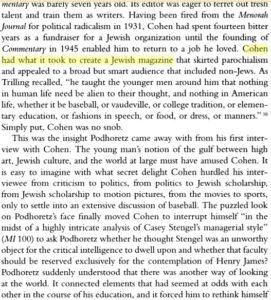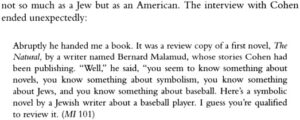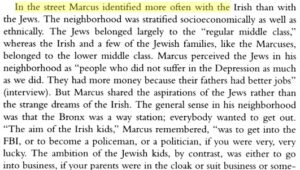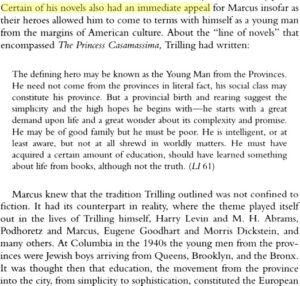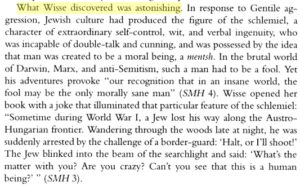Here are some highlights from this 1998 book by Susanne Klingenstein:
* Harvard is the biggest thing in town…Harvard is an octopus sprawled all over Cambridge with tentacles reaching deep into Boston… Once you are inside…the Harvard world…is very small, enclosed and indrawn. It is a cerebral, peaceful place that is happy with itself. Its intellectual forces are centripetal… The sense of having arrived at the top…creates…a soft, fuzzy generosity… Columbia’s challenging urban setting and exciting cosmpolitan environment…account for its much tenser atmosphere. Students and faculty seem always wired. The city is overcrowding the campus. New York, with its tough realities and extraordinary opportunities for stunning careers, is always there, even in a seminar on Shakespeare’s sonnets. Columbia is among the smallest things in town, always threatened to be overwhelmed. The students measure who they are against the realities of the city. Hence Columbia’s intellectual forces are centrifugal, shattered and refracted by the city, the epitome of the real world.
* In a small, encapsulated, self-referential world [Harvard], the venting of passion disrupts communal harmony and is frowned upon. In a large, open space [Columbia], where people can get away from each other, passion creates variety and entertainment, and people are more easily induced to act upon impulse, personal taste, and cultural or ideological preference… Columbia had room for the unfolding of many passionate souls.
* T.S. Eliot in 1919: “What I mean by tradition involves all those habitual actions, habits, and customs, from the most significant religious rites to our conventional way of greeting a stranger, which represent the blood kinship of the same people living in the same place.”
* “Jews in Minnesota weren’t going anywhere. There was no future for the mind in Jewish culture, at least not m Minneapolis. If you wanted to grow, you had to leave.” Harry Levin
* Eliot in 1932: “Stability is obviously necessary. You are hardly likely to develop tradition except where the bulk of the population is relatively so well off where it is that it has no incentive or pressure to move about. The population should be homogeneous ; where two or more cultures exist in the same place they are likely either to be fiercely self-conscious or both to become adulterate. What is still more important is unity of religious background; and reasons of race and religion combine to make any large number of free-thinking Jews undesirable. There must be a proper balance between urban and rural, industrial and agricultural development. And a spirit of excessive tolerance is to be deprecated. We must also remember that–in spite of every means of transport that can be devised–the local community must always be the most permanent, and that the concept of the nation is by no means fixed and invariable. It is, so to speak, only one fluctuating circle
of loyalties between the centre of the family and the local community, and the periphery of humanity entire. Its strength and its geographical size depend upon the comprehensiveness of a way of life which can harmonise parts with distinct local characters of their own.”
* Harvard president Abbott Lawrence Lowell “opposed large-scale immigration of ‘alien races.’ He believed that American social and political institutions could not survive in a heterogeneous society… Lowell was terrified of what the ever-swelling flood of immigrants might bring.”
* It was important…to establish a relationship to Gentile culture that permitted [M.H.] Abrams access to its inner sanctum, to its chain of ideas and ideological mechanisms, without demanding an investment of emotion or belief. Abrams did not wish to transfer his obligations from one culture to another. The possibility…of reading the literature of Christian Europe not as an immediate appeal to one’s identity, but as a series of metaphors, offered a distancing mechanism that allowed Abrams to speak analytically rather than appreciatively…
* Imaginative consent for the length of a poem does not constitute intellectual consent.
* Politics is often the vehicle for nonpolitical emotions and compulsions. (Daniel Aaron)
* …the first Jewish literary scholars were integrated into East Coast literary academe as facsimile WASPs; had they been visible as Jews or written on Jewish topics, they would not have had academic careers. Having grown up in assimilated, rather well-off, nonreligious households, they never lived intellectually or culturally as Jews. Hence they had nothing to give up or to deny or to suppress when they entered Ivy League academe and when they married non-Jews… Veblen’s aliens of the uneasy feet had settled down and were explaining their country to the descendants of old-stock Americans.
* …the Jews who cared to go into literary studies during the 1920s, 1930s, and 1940s had no intellectual interest in their Jewish heritage, and they certainly were not religious.
* “No change of ideology…can make a man cease to be the son of his parents.” (Morris Cohen)
* What was new about Podhoretz’s essay [My Negro Problem — And Ours] and anathema to liberal opinion at the time was the observation that the violence of urban blacks was not an innocent expression of despair but a deliberate articulation of bigotry and prejudice.
* Steven Marcus, literary critic, came from the lower middle class…
or go to college to be a doctor or a lawyer… My parents wanted me to be a doctor.
* Concern for the preservation of one’s moral integrity was a response to adversity that blamed the self and let the destroyers get away with murder.
* Gimpel the Fool: “What is the good of not believing? Today it’s your wife you don’t believe in, tomorrow it’s God Himself you won’t take stock in.”
* The critical voices raised by Jews, especially in the era of the civil rights struggle and the Vietnam War, demonstrated how deeply Jews cared that America live up to its promise. This idealism was shared by most of the Jews hired by English departments until the late 1970s. They were a self-selected group of secular, liberal intellectuals who kept a safe distance from all forms of particularism — religious, ethnic, nationalist — unless such particularism benefitted the empowerment of disenfranchised groups, such as women, blacks, Hispanics, homosexuals, and so forth.
* Just as literary scholars long to practice the craft they study and have thus far produced some bafflingly bad novels, so drama scholars…yearn to participate in the theater of the day.
* This new readiness by third-generation scholars to talk about their Jewishness is checked only by their discovery that they have very little to say about it, because beyond childhood memories…Jewishness or Judaism plays no role in their social and intellectual lives.

